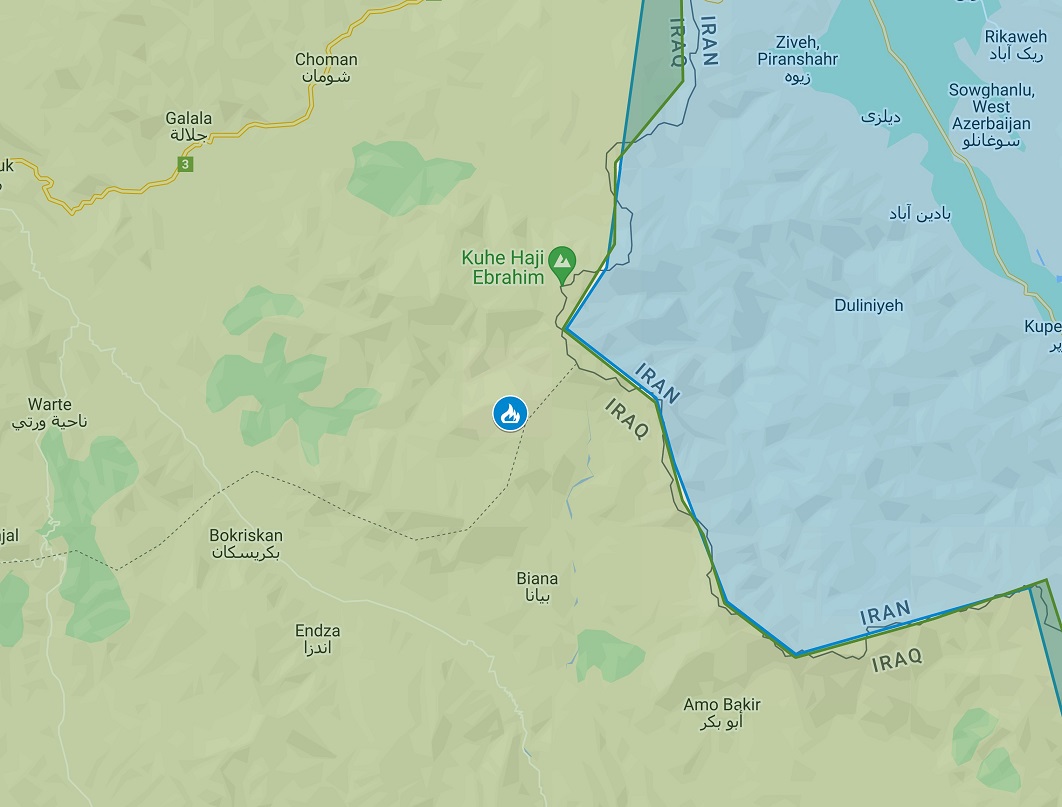1.6K
Iran
- The Iranian regime launched several cross-border attacks on Kurdish opposition bases in Erbil Governorate’s Choman and Soran districts with drones, rockets, and artillery on Wednesday. The exiled Cooperation Center for Iranian Kurdistan’s Political Parties (CCIKP) responded by accusing the Iranian regime of “violating the law and sovereignty of the Kurdistan Region” and “creating an atmosphere of fear and anxiety.” The CCIKP also blamed the regime for “devoting public resources to creating regional crises and promoting state terrorism.” Meanwhile, the head of Sulaymaniyah Governorate’ Sangaser subdistrict, Nehro Abdullah, said Iranian forces arrested seven Kurdish civilians on the Iraqi side of the border near the Qandil Mountains.
- Wheat prices tripled in Iran last week, causing anxiety and sparking protests. Iranian authorities quickly retaliated by arresting dozens of protesters, many of whom were demonstrating against Iranian Supreme Leader Ayatollah Ali Khamenei. Iranian intelligence officers (Ettela’at) in the Kurdish region warned dozens of Kurdish activists not to protest or post information about the price hikes on social media. Concurrently, the regime arrested several Kurdish activists, including Shabaan Mohammadi in Marivan, Farhad Mirazee in Kermanshah, Ali Salihi in Sanandaj (Sena), and a 61-year-old female named Narmin Abadi in Bokan. Finally, Iranian security forces injured at least eight Kurdish border porters (kolbars) near Marivan and Nowsud.
Iraq
- Muqtada al Sadr, the leader of Iraq’s largest parliamentary bloc, announced plans to transform his coalition into an opposition bloc for at least 30 days and grant independents 40 days to form a new government. Al Sadr previously gave the Iranian-backed bloc known as the “Coordination Framework” 40 days to form a new government, but they failed to do so before the deadline passed. Al Sadr’s coalition has remained coherent despite pressure on its main partners, the Sunni Sovereignty Alliance and Kurdistan Democratic Party (KDP). The KDP remains embroiled in disagreements with the Patriotic Union Kurdistan (PUK) over the selection of a candidate for the Iraqi presidency and a timeline for elections in Iraqi Kurdistan. On another note, US Ambassador to Iraq Matthew Tueller visited the Kurdistan Region and met with several officials and political parties. Tueller also blamed regional powers for sabotaging relations between Baghdad and Erbil.
- The Kurdistan Regional Government (KRG) denied the Iraqi North Oil Company’s (NOC) claim it seized control of several oil fields north of Kirkuk and accused the NOC of operating unlawfully in Iraqi Kurdistan for years. “The campaign against the Kurdistan Region is politically motivated and has no legal basis. The accusations against the Kurdistan Region are far from the truth and are only to create chaos and against the rights of the Kurdish people,” read a KRG statement.
- The Peshmerga conducted two joint operations with Iraqi forces and the US-led coalition that targeted ISIS (Da’esh) terrorists near the Qara Chokh Mountains in Makhmour Governorate. The operations killed six terrorists and destroyed several Da’esh hideouts. The Peshmerga also announced an IED wounded one of its personnel during a separate joint operation with Iraqi forces near Tuz Khurmatu.
Syria
- The US-backed Syrian Democratic Forces (SDF) conducted several anti-Da’esh operations and arrested seven terrorists in Deir Ez Zor Governorate, including two senior leaders, one of whom was responsible for “securing weapons and financing.” That said, Turkey struck several SDF positions near occupied Afrin, Manbij, Kobani, Zarakan, and Tal Tamer. The SDF said Turkish artillery rained down 40 tons of explosives on 53 villages and claimed such attacks damage farmlands while “deliberately targeting cities and towns during peak hours to intimidate civilians and prevent them from continuing their work.” The US Embassy in Syria expressed “deep concerns” and called for “all parties to deescalate and support regional stability.” Separately, Turkey accused the SDF of attacking a Turkish base near Jarabulus and asserted it killed 52 of the attackers. The SDF denied responsibility and accused Turkey of fabricating “a pretext for attacks against the regions of northern and eastern Syria.”
- A severe sandstorm in Syria and Iraq killed at least seven people, including a woman and two children, at the Abu Khashab camp for displaced persons in Deir Ez Zor Governorate. The sandstorm also destroyed tents and caused many to become ill.
Turkey
- The pro-Justice and Development Party (AKP) mayor of Kocaeli Province’s Dernice District banned a famous female Kurdish singer named Aynur Dogan from holding a concert because he deemed it inappropriate. Pro-Kurdish Peoples’ Democratic Party (HDP) lawmaker Dersim Dag described the ban as a “century-old oppression and assimilation policy applied to the Kurdish language” and cited the cancelation of Dogan’s concert as “another example of what Kurds are facing.” Kemal Kilicdaroglu, the Turkish head of the opposition Republican People’s Party (CHP), also criticized the ban on Dogan. On another note, dozens of Kurdish women received the remains of a deceased Kurdish politician named Aysel Dogan. Dogan, who previously served 17 years in a Turkish prison, was exiled in 2012 and died in Germany last month at the age of 69. Turkish police attacked mourners and arrested dozens at her funeral.
- Turkey’s economic woes continued last week, as the Turkish lira plunged again and is now trading at 15.6 to the dollar. Likewise, Turkey’s unemployment rate rose to 11.5 percent in March. HDP lawmaker Saruhan Oluç mocked the AKP’s “new economic model” that was imposed six months ago and blamed it for the country’s ongoing financial woes.

